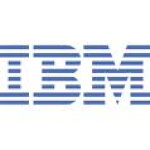- Domeniu: Computer
- Number of terms: 98482
- Number of blossaries: 0
- Company Profile:
Sometimes referred to as “Big Blue” IBM is a multinational corporation headquartered in Armonk, New York. It manufactures computer hardware and software and provides information technology and services.
(1) A lock that provides concurrency control within and among DB2 subsystems. The scope of the lock is across all DB2 subsystems of a data sharing group.<br />(2) An IRLM lock that interests two IRLMs; both must coordinate to grant it.
Industry:Software
(1) A log file containing a record of system events and responses.<br />(2) A log that maintains the history of all commands that modify metadata or configuration data and significant operations, including commands that would have made a change but failed to do so.
Industry:Software
(1) A log that contains information about events for a particular system or group, for a particular metric, or for all the events that are associated with a specific monitor.<br />(2) A log that maintains a history of event messages issued by all metadata servers in a cluster.
Industry:Software
(1) A logical address that allows a system to route data between a remote device and the appropriate communications support.<br />(2) In Open Systems Interconnection (OSI) architecture, the point at which the services of a layer are provided by an entity of that layer to an entity of the next higher layer.<br />(3) The protocol and credentials associated with a data center device for authentication of remote operations. A data center device can have more than one service access point.
Industry:Software
(1) A logical collection of data elements that can be referred to either collectively or individually.<br />(2) In PL/I, an arry or a structure.
Industry:Software
(1) A logical division of storage reserved for processing a job or group of jobs.<br />(2) A named set of storage volumes that is the destination that is used to store client data. See also archive, retrieve.<br />(3) A grouping of storage space consisting of volumes, logical unit numbers (LUNs), or addresses that share a common set of administrative characteristics. See also user pool.
Industry:Software
(1) A logical drive through which volumes are accessed in a sequential access device class. For removable media device types, such as cartridges, a mount point is a logical drive associated with a physical drive. For the file device type, a mount point is a logical drive associated with an I/O stream.<br />(2) In Linux operating systems and in UNIX operating systems such as AIX, the directory at which a file system is mounted and under which other file systems may be mounted.<br />(3) A directory established in a workstation or a server local directory that is used during the transparent accessing of a remote file.
Industry:Software
(1) A logical expression specifying a program state that must exist or a set of conditions that program variables must satisfy at a particular point during program execution.<br />(2) A capability or requirement that represent a domain specific concept. Assertions fall into the following categories: performance, reliability, interoperability, security, and manageability.
Industry:Software
(1) A logical or virtual connection between two stations, software programs, or devices on a network that allows the two elements to communicate and exchange data. See also SQL connection, transaction.<br />(2) A type of resource that controls local logical units (LUs), remote LUs, modes, and attachments.<br />(3) In Java EE, an object used by a servlet to track a user's interaction with a Web application across multiple HTTP requests.<br />(4) In a distributed application, a single conversation between a communicating pair of transactions. See also conversation.<br />(5) A series of requests to a servlet originating from the same user at the same browser.<br />(6) A collection of process groups established for job control purposes.
Industry:Software
(1) A logical record stored in more than one block on a storage medium.<br />(2) In the Virtual Storage Access Method (VSAM), a logical record whose length exceeds control interval length and, as a result, crosses, or spans, one or more control interval boundaries within a single control area.
Industry:Software
